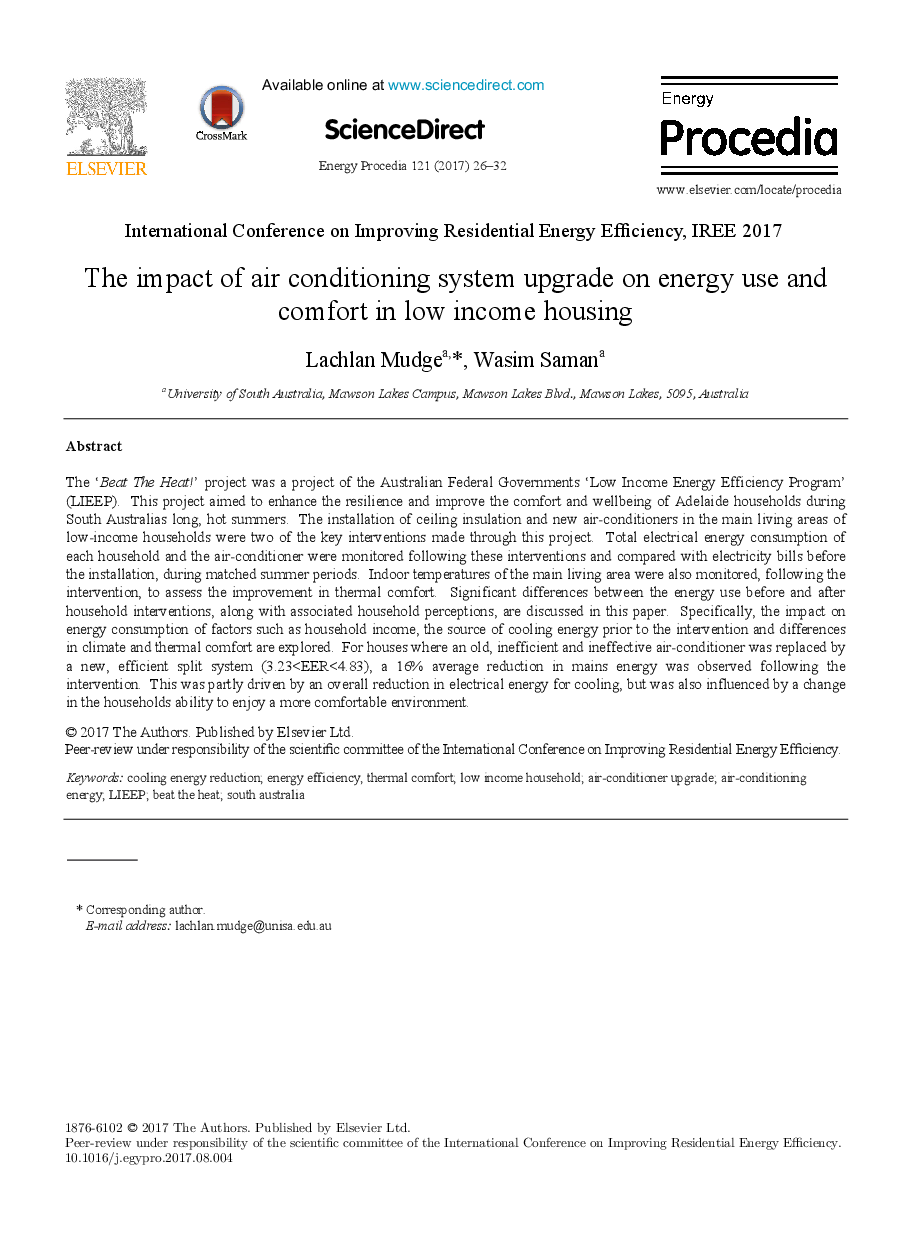ترجمه فارسی عنوان مقاله
تأثیر سیستم تهویه مطبوع در استفاده از انرژی و راحتی در مسکن کم درآمد
عنوان انگلیسی
The impact of air conditioning system upgrade on energy use and comfort in low income housing
| کد مقاله | سال انتشار | تعداد صفحات مقاله انگلیسی |
|---|---|---|
| 144292 | 2017 | 7 صفحه PDF |
منبع

Publisher : Elsevier - Science Direct (الزویر - ساینس دایرکت)
Journal : Energy Procedia, Volume 121, September 2017, Pages 26-32

